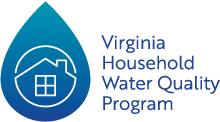VT-Spray Water Assessment Program

What is in the water used in your sprayer & mix tank?
Pesticide performance can be greatly affected by the quality of the water used for mixing. Even clear water may contain dissolved minerals, alkalinity or acidity that can reduce the effectiveness of pesticides, shorten half-life time following mixing, or impact the application rate. Testing source water can provide information about chemical stability and the need for water conditioners, adjuvants, pH buffers or water treatment. Virginia Tech Spray Water Assessment Program (VT-SWAP) can help!
How does the testing process work?
- Clinics will be planned at several Extension offices in 2024 to allow local pick up of sample kits. Producers will collect samples on a designated date and drop off locally.
- Samples are analyzed at Virginia Tech for pH, hardness, metals and elements.
- Receive your confidential results, an explanation of what they mean, and information about addressing any problems by email or at a local meeting.
Want to learn more?
Related links
- Spray Water Quality and Pesticide Characteristics (PDF)
- Understanding Tank Mix Practices (PDF)
- Solving Spray Water Problems (PDF)
- Contact us for more information

Funding for "Helping Producers Understand Spray Water Chemistry for Improved Pesticide Efficacy", which helped to create VT-SWAP, was made possible by the U.S. Department of Agriculture’s (USDA) Agricultural Marketing Service through grant AM200100XXXXG066 and the Virginia Department of Agriculture and Consumer Services. Its contents are solely the responsibility of the authors and do not necessarily represent the official views of the USDA.



